


Blessed be Jesus in the Most Holy
Sacrament of the Altar.

Dedication To
Our Lady
By The Author
M Y most holy Queen, on the point of publishing the present little work, which treats of the love of your Son, I know not to whom I can better dedicate it than to you, my most beloved Mother, who, among all creatures, are His greatest lover. I believe that in making to you this little offering of a work composed for the sole purpose of inflaming souls more and more with the love of Jesus Christ I shall greatly please you, who desire to see Him loved by everyone as He deserves. To you, then, I consecrate it, such as it is; do you graciously accept and watch over it, not indeed that I may receive the praises of men, but that all who read it may, for the future, correspond by their greater devotion and affection to the tender, the excessive love which our most sweet Saviour has been pleased to show us in His Passion and in the institution of the Most Holy Sacrament. As such, I place it at your feet and beseech you to accept, as entirely yours, both the gift and the giver, who has long since placed all his hope in you and wishes and hopes ever to call himself, and to rejoice in being,
Most gracious Lady,
Your most loving, though most unworthy
servant,
ALPHONSUS DE LIGUORI.
| Imprimi Potest: | Michael Curran, C.SS.R.
Provincial Superior
Limerick
October 23, 1952 |
| Imprimi Potest: |  | Patrick
Bishop of Limerick
Limerick
November 1, 1952 |
Published in Ireland around 1952. Retypeset and republished in 2000 by TAN Books, an Imprint of Saint Benedict Press, LLC, with permission of the Redemptorist Provincial, Dublin
Fontispiece courtesy of Discalced Carmelite Nuns, Danvers, Massachusetts.
Library of Congress Control No.: 00-131561
ISBN: 978-0-89555-667-7
Printed and bound in the United States of America.
TAN Books
An Imprint of Saint Benedict Press, LLC
Charlotte, North Carolina
2012
CONTENTS
Blessed are the poor in spirit: for theirs is the king dom of heaven. Blessed are the meek: for they shall possess the land. Blessed are they who mourn: for they shall be comforted. Blessed are they that hunger and thirst after justice: for they shall have their fill. Blessed are the merciful: for they shall obtain mercy. Blessed are the clean of heart: for they shall see God. Blessed are the peacemakers: for they shall be called the children of God. Blessed are they that suffer persecution for justice sake: for theirs is the kingdom of heaven. Come to me, all you that labour, and are burdened, and I will refresh you.
Instructions On The Visits
These Instructions are from the edition of the Visits published sometime between 19071944 by Mission Church Press, Boston, with the Imprimatur of William [OConnell], Archbishop of Boston. The above heading and the Instruction subheadings were added by the present publisher, 2000.
The Visit To The Most Blessed Sacrament
O UR holy Faith teaches us, and we are bound to believe, that in the consecrated Host Jesus Christ is really present under the species of bread. But we must also understand that He is thus present on our altars as on a throne of love and mercy, to dispense graces and there to show us the love which He bears us by being pleased to dwell night and day hidden in the midst of us.
It is well known that the Holy Church instituted the festival of Corpus Christi with a solemn octave, and that she celebrates it with the many usual processions and such frequent expositions of this Most Holy Sacrament, that men may thereby be moved gratefully to acknowledge and honor this loving presence and dwelling of Jesus Christ in the Sacrament of the Altar by their devotions, thanksgivings and the tender affections of their souls. O God, how many insults and outrages has not this amiable Redeemer had, and does He not have daily, to endure in this Sacrament on the part of those very men for whose love He remains upon their altars on earth! Of this He indeed complained to His dear servant Sister Margaret Alacoque [St. Margaret Mary], as the author of the Book of Devotion to the Heart of Jesus relates:
The Heart of Jesus
One day, as she was in prayer before the Most Holy Sacrament, Jesus showed her His Heart on a throne of flames, crowned with thorns and surmounted by a cross, and thus He addressed her: Behold that Heart which has loved men so much, and which has spared itself nothing, and has even gone so far as to consume itself, thereby to show them its love; but in return the greater part of men show Me only ingratitude, and this by irreverence, tepidity, sacrileges and contempt which they offer Me in this Sacrament of love; and that which I feel the most acutely is that they are hearts consecrated to Me. Jesus then expressed His wish that the first Friday after the octave of Corpus Christi should be dedicated as a particular festival in honor of His adorable Heart, and that on that day all souls who loved Him should endeavor, by their homage and by the affections of their souls, to make amends for the insults which men have offered Him in this Sacrament of the Altar; and at the same time He promised abundant graces to all who should thus honor Him.
We can thus understand what Our Lord said of old by His prophet: that His delight is to be with the children of men ( Prov. 8:31), since He is unable to tear Himself from them even when they abandon and despise Him. This also shows us how agreeable to the Heart of Jesus are all those souls who frequently visit Him and remain in His company in the churches in which He is under the sacramental species. He desired St. Mary Magdalene of Pazzi to visit Him in the Most Blessed Sacrament 33 times a day; this beloved spouse of His faithfully obeyed Him and, in all her visits to the altar, approached it as near as she possibly could, as we read in her Life.
Saints and the Blessed Sacrament
But let all those devout souls who often go to spend their time with the Most Blessed Sacrament speak: let them tell us the gifts, the inspirations which they have received, the flames of love which are there enkindled in their souls, the paradise which they enjoy in the presence of this hidden God.
The servant of God and great Sicilian missionary, Father Louis La Nusa, was, even in his youth and as a layman, so enamored of Jesus Christ that he seemed unable to tear himself from the presence of his beloved Lord. Such were the joys which he there experienced that his director commanded him, in virtue of obedience, not to remain there for more than an hour. The time having elapsed, he showed in obeying (says the author of his Life) that in tearing himself from the bosom of Jesus Christ he had to do himself just such violence as a child that has to detach itself from its mothers breast in the very moment in which it is satiating itself with the utmost avidity; and when he had to do this, we are told that he remained standing with his eyes fixed on the altar, making repeated inclinations, as if he knew not how to leave his Lord, whose presence was so sweet and gracious to him.
Next page
![St. Alphonsus Liguori Visits to the Blessed Sacrament (with Supplemental Reading: Novena of Holy Communions) [Illustrated]](/uploads/posts/book/269658/thumbs/st-alphonsus-liguori-visits-to-the-blessed.jpg)
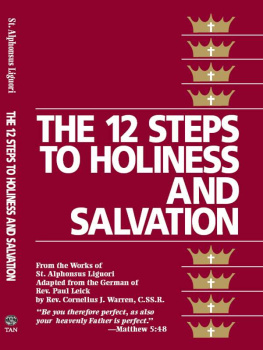
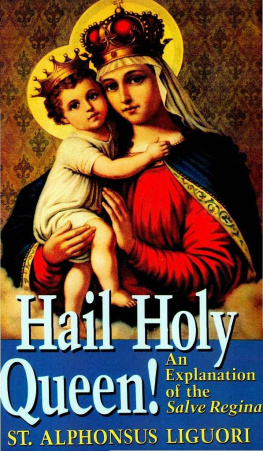
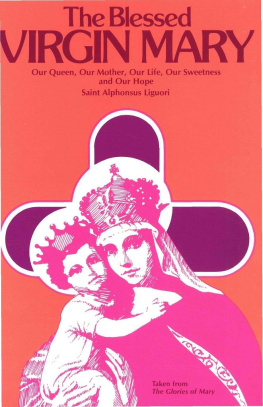
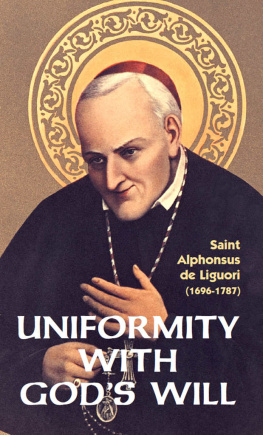

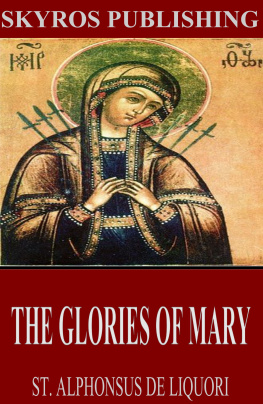

![Saint Alphonsus de Liguori - The Saint Alphonsus de Liguori Collection [30 Books]](/uploads/posts/book/134324/thumbs/saint-alphonsus-de-liguori-the-saint-alphonsus-de.jpg)




